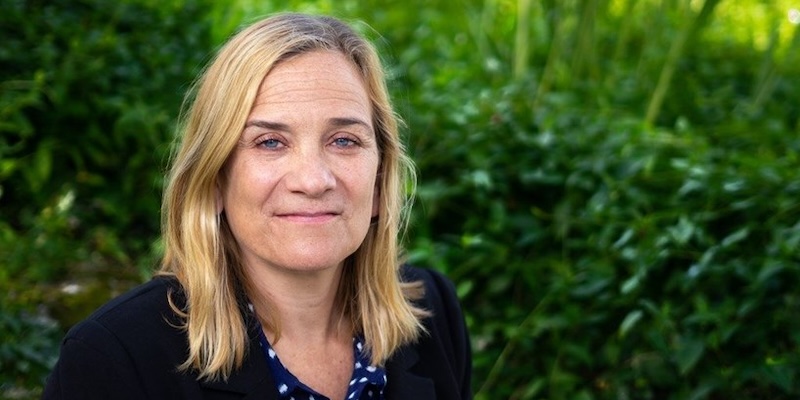
Tracy Chevalier Has No Time for Writers Who Don't Read
The Author of "The Glassmaker" Takes the Lit Hub Questionnaire
Tracy Chevalier’s novel, The Glassmaker, is available now from Viking, so we asked her a few questions about writing, reading, alternative professions, and more.
*
Who is the person, or what is the place or practice that had the most significant impact on your writing education?
The most important part of a writer’s education is reading. You have to love reading; you have to be crazy about books. This may seem obvious, but I have sometimes asked nascent writers what they’re reading now, and they have replied, “Oh, I don’t have time to read.” It would be like a musician saying they don’t listen to others’ music, or an artist not looking at other art.
So books are important. The most influential person in my reading life was Mrs. Carney, the children’s librarian at Takoma Public Library, my local in Washington, DC when I was growing up. I went there every week and took out a stack of books.
Mrs. Carney would often set aside a book for me, saying encouraging things like “I think you’re ready for this now.” The next week she would ask me about the book and we’d talk about our favorite parts. It was like a two-person reading group. Mrs. Carney was my reading mentor, nurturing my love of books by sharing her own love. I am forever in her debt.
What part of your writing routine do you think would surprise your readers?
People always seem surprised that I write by hand. These days most write directly onto the computer. For something like this questionnaire that’s fine. But for me, there is something about the brain-hand connection that helps me formulate the words.
Typing words onto a screen also feels more like “work”—like filling out a form. Novels are not forms. Also, I type fast and write slowly; my writing hand seems to be more in sync with the time that a sentence forms in my mind.
I do use a computer, of course. At the end of the day I type in what I’ve written by hand. Editing is much easier on a computer. Having said that, once I’ve got a draft I print it out and edit it on paper. It’s probably no surprise that I also don’t read ebooks very often; I much prefer the tactile experience of a physical book.
Which of your characters is your favorite?
Usually it’s the main character in the book I’ve been working on, because I’ve just spent so much time with them that they’re still resonating inside me. At the moment that would be Orsola Rosso, heroine of The Glassmaker, who becomes a glass bead maker in Venice over the course of five hundred years. (Yes, you read that right. Time runs differently in Venice.) Orsola goes on quite a journey.
But really all my characters are still inside me; some quieter than others, but they all still live on, even when they’ve died in the novels.
How do you organize your bookshelves?
Our bookshelves are the most disorganized ever. I say “our” because my husband and my books are blended. This is exceptionally tricky, as we have different ideal ways of organizing. For a while I managed to keep my fiction books in alphabetical order, to give them some sort of structure.
Jon found this amusing, even endearing. He likes books to be all over the place, vaguely by subject but really all mixed up. He likes the serendipity of finding a surprising book next to the one he’s looking for.
Eventually my alphabetical system fell apart, and novels are everywhere, and it’s hard to find anything. We have books in every room in the house apart from the conservatory. We haven’t resorted to stacking them on the stairs yet, at least.
Sometimes I see photos of houses where books are organized by color and I think two things: 1. Ridiculous; not readers. 2. God, that would be so much easier!
If you weren’t a writer, what would you do instead?
If I had to stop writing tomorrow, I would run a tea and cake café. I love baking and I know which cakes I would have: a good chocolate, a good lemon, a good carrot, and one guest cake. If I could go back forty years, I would do the training to become a designer of minimalist environmentally friendly packaging.
Ever since I was a kid I’ve thought there’s way too much packaging. I read somewhere that they’ve invented edible packaging, which just blows my mind!
______________________________

The Glassmaker by Tracy Chevalier is available via Viking.



















